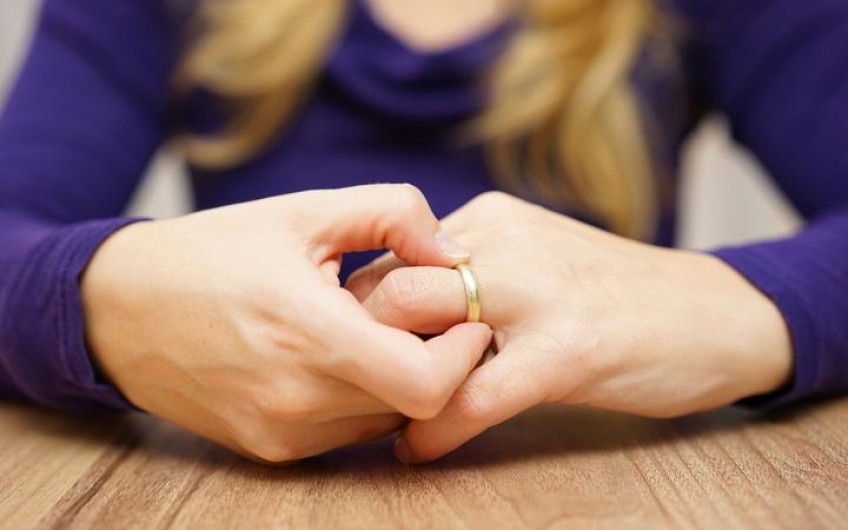Lawyers facing deluge of divorce enquiries as Covid-19 takes its toll on relationships

Lawyers say they're facing a deluge of separation enquiries as relationships buckle under the pressures of the Covid-19 pandemic.
Some prospective divorcees wanting advice or legal intervention are being turned down - forced to either represent themselves in court, or sit on waitlists for weeks.
In five years working as a divorce coach in Auckland, Kimberlee Sweeney has seen her fair share of unhappy couples seeking advice on untying the knot.
Throw the economic pressures of Covid-19 into the mix - and weeks spent in lockdown - and Sweeney, who worked with about 10 to 15 couples a week, said she was being inundated with new clients.
"During and since lockdown, probably I've found an increase in business of about I'd say quadruple, in terms of people reaching out asking for support going through, or thinking about going through, a separation," she said.
"It's just people reaching out daily."
It could take until 2022 to see the full effect of the pandemic on divorce rates because couples are required to spend two years apart before filing Family Court paperwork.
However, Sweeney said a lot of lawyers and mediators she referred clients to were already so busy with people starting the separation process they were turning down new clients.
Backing that theory was Nelson mediator Steve Taylor, who said he was doing about 30 percent more relationship counselling since lockdown, with his waitlist jumping from two to six weeks.
Christchurch family court lawyer Tania Cook, who represented children in child custody battles, said the whole family court system was clogged.
"Most family court lawyers I speak to are trying to do their best, because children are involved, to make sure we're trying to process the work as quickly and as effectively and as child-focused as we can. But sometimes that's not quick enough for some people," she said.
Family Law Results director Selina Trigg worried the demand would take a toll on people in abusive relationships, or needing urgent child care.
"They are ringing around trying to find someone and the upshot of the shortage is people then, who are in vulnerable situations, are left having to look at representing themselves."
The divorce-related demand was exacerbating an existing shortage of family lawyers, with a reduction in the number of family law firms around New Zealand over the past few years, she said.
"Even prior to lockdown, family lawyers have been faced with increasingly complex cases. Clients who present to us are coming with really complex social, economic and legal issues… and that means their cases are simply taking longer, which means less capacity to take on new work," she said.
Jeremy Sutton, Photo: Supplied
Auckland divorce lawyer Jeremy Sutton was another having a busy time, with a 25 percent hike in business since April that he attributed to Covid-19.
He said that increase was on par with other family lawyers he knew.
The economic pressures of Covid-19 had intensified existing problems for some couples, while the pandemic had helped others realise life was short and that they were not happy in their relationship, he said.
For many, the straw that broke the camel's back was lockdown and working from home.
'Sometimes it's different parenting styles, if they can see what their partner is like as a parent now they're all just in the house - it's a very restrictive environment. And perhaps the major thing is people are juggling children, work and their relationship at the same time," he said.
Sutton helped separating couples split their assets, but at the moment that process could be a minefield in itself, he said.
"If they're buying their partner out of a house for example, banks are slower at the moment to approve lending, the whole information flow seems to take longer and valuers are more reluctant to put a value on a house because they're not sure what the effect of Covid-19 is."
Some see a silver lining
Sweeney said some other couples had seen a silver lining to the pandemic, with several clients deciding to hold off on divorce.
"There's been some cases where they've reconciled and realised that life wasn't easy on their own, or the grass wasn't greener. The lockdown highlighted to them that their family was important and they did want to get back together and try make it work."
Spikes in divorce enquiries have also been reported in the US, China, Australia and the UK.
Lawyers say they expect the high demand to continue until at least the end of the year.





















